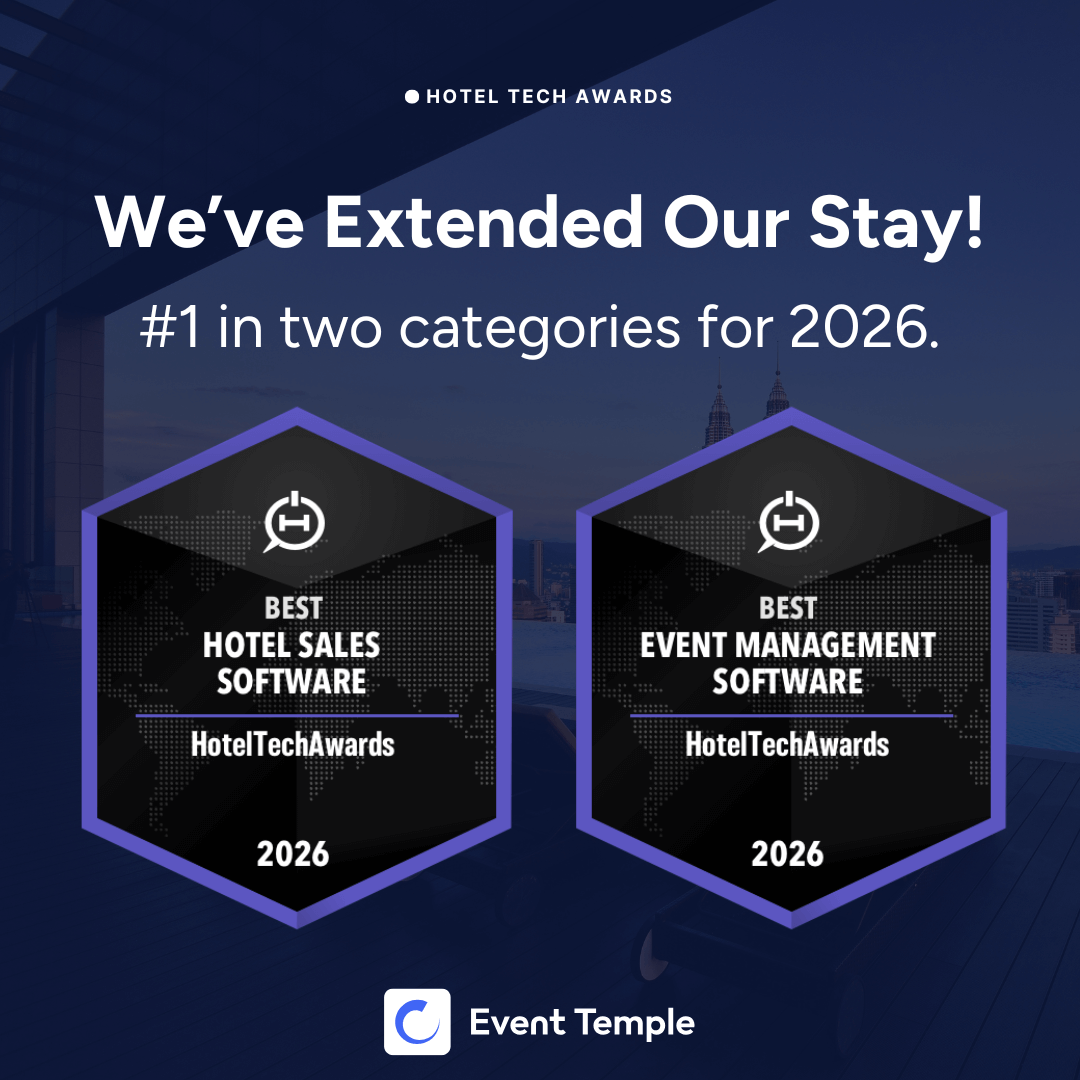
This is the fourth in our series on How to Improve Your Hotel’s Sales. To be the first to get Part 5, sign up here
The phone rings. It's a potential client interested in hosting their annual conference at your property. What happens in the next 30 minutes could determine whether you land a $250,000 piece of business or become just another forgotten vendor in their inbox.
Welcome to the discovery call—where relationships begin and where average hotel sales professionals separate from exceptional ones.
Yet here's the uncomfortable truth: Most hotel sales teams treat these crucial first conversations like interrogations rather than dialogues. They rush through a checklist of dates, room counts, and catering requirements, missing the golden opportunity to understand what truly matters to their prospect. In an industry where properties increasingly compete on price alone, mastering the discovery call isn't just important, it's your competitive advantage.
The Million-Dollar Mindset Shift
Before diving into tactics, let's address the elephant in the ballroom: Discovery calls aren't about selling your property. They're about understanding your prospect's world so deeply that your eventual proposal feels less like a pitch and more like the obvious solution.
Think of yourself as a consultant, not a salesperson. Your role is to diagnose before you prescribe. As negotiation expert Chris Voss teaches in "Never Split the Difference", tactical empathy, understanding your counterpart's perspective and making them feel understood, creates trust faster than any amenity tour ever could.
This shift from "telling" to "discovering" transforms everything. Instead of leading with your renovated ballroom or award-winning catering, you lead with curiosity. What does success look like for their event? What went wrong at their last venue? What would make the planner look like a hero to their stakeholders?
Pre-Call Preparation: Your Secret Weapon
Exceptional discovery calls begin long before you pick up the phone. The best hotel sales professionals invest 15-20 minutes in research that pays dividends throughout the entire sales process.
Start with LinkedIn. Who is this person? What's their professional background? Have they recently changed companies? Understanding their context helps you ask smarter questions and build rapport faster. If you notice they've just joined a new organization, you might explore how this event fits into their mandate to make an impact.
Next, investigate the company. What's happening in their world? Recent mergers, expansions, or leadership changes all influence event priorities. A company celebrating record profits has different needs than one navigating market challenges. Tools like Google Alerts can keep you informed about your prospects' businesses.
Review your CRM for any previous interactions with this organization. Did they inquire two years ago but book elsewhere? Understanding that history prevents you from repeating past mistakes and shows institutional knowledge that builds confidence.
Document your findings in a pre-call planning sheet. Include key stakeholders, potential pain points, and three thoughtful questions specific to their situation. This preparation demonstrates professionalism and genuine interest—qualities that matter when planners choose between similar properties.
The Opening: Setting the Stage for Success
The first two minutes set the tone for everything that follows. Skip the weather talk and property boasting. Instead, establish the framework for a productive conversation.
"Thanks for taking the time today. I've done some homework on your organization and I'm excited to learn more about your upcoming event. To make sure I'm respecting your time, what would make this conversation valuable for you?"
This opening accomplishes three critical things: It shows preparation, it's prospect-focused, and it invites them to guide the conversation. You're immediately different from every other sales rep who launched into a property pitch.
Follow up by setting expectations: "I'd love to spend most of our time understanding what you're looking for, and then I can share some initial thoughts on how we might help. Does that work for you?" This positions you as a consultant, not a vendor.
The Art of Strategic Questioning
Great discovery isn't about asking more questions—it's about asking better ones. Drawing from Gap Selling methodology, focus on understanding three critical areas: their current state, their desired future state, and the gap between them.
Current State Questions:
- "Tell me about your last event. What worked well?"
- "What challenges did you face with your previous venue?"
- "How do you currently measure event success?"
These questions uncover pain points without feeling invasive. When they mention the previous hotel's slow response time or inflexible catering options, you're gathering intelligence for your proposal.
Future State Questions:
- "In a perfect world, what does a successful event look like?"
- "What would need to happen for your attendees to call this the best conference yet?"
- "How would a home-run event impact your role or your team?"
These questions elevate the conversation beyond logistics to outcomes. You're not just filling room blocks; you're helping them achieve professional goals.
Gap Questions:
- "What's preventing you from achieving that ideal outcome?"
- "What happens if this event doesn't meet expectations?"
- "What's the impact of not solving these challenges?"
As sales expert Josh Braun emphasizes, understanding the cost of inaction often motivates decisions more than highlighting benefits. When prospects articulate their own pain points, they become invested in finding solutions.
Active Listening: Your Competitive Advantage
Here's where most hotel sales professionals fail: They're so focused on their next question or objection-handling technique that they miss critical information. Active listening means being fully present, taking detailed notes, and asking follow-up questions that show you're engaged.
When they mention the CEO's opening remarks, ask: "How important is the CEO's presence to the overall event?" When they reference last year's feedback, probe deeper: "What specific feedback stood out?"
Document everything meticulously. That offhand comment about the CEO preferring afternoon natural light for presentations? Note it. Their team's tradition of themed dinners? Capture it. The board member who's allergic to shellfish? Write it down.
These details become your differentiation. When your proposal addresses concerns they mentioned once in passing, you demonstrate a level of attention that price-focused competitors can't match.
Use verbal confirmation to ensure understanding: "Let me make sure I'm getting this right. You're saying the networking breaks are actually more valuable than the formal sessions because that's where the real business happens?" This technique, borrowed from hostage negotiation, ensures accuracy while making prospects feel heard.
Navigating Common Pitfalls
Even experienced hotel sales professionals stumble in discovery calls. Here are the most common mistakes and how to avoid them:
Pitfall 1: Talking Too Much The 70/30 rule applies: They should talk 70% of the time. If you're dominating the conversation, you're not discovering—you're pitching. Use open-ended questions and comfortable silence to encourage elaboration.
Pitfall 2: Leading with Price When prospects ask about rates early, redirect to value: "I want to make sure any pricing I provide is relevant to your specific needs. Can you help me understand..." Price without context commoditizes your property.
Pitfall 3: Making Assumptions Never assume you know what matters most. The association executive might care more about technology than catering. The corporate planner might prioritize flexibility over luxury. Let them tell you their priorities.
Pitfall 4: Forgetting the Emotional Element Business events are personal. The planner's reputation is on the line. Acknowledge this: "I imagine there's a lot riding on this event for you personally." This emotional intelligence builds trust and uncovers deeper motivations.
Closing with Clarity and Momentum
A strong discovery call ends with clear next steps, not vague promises to "send something over." Summarize what you've learned to confirm understanding and demonstrate attention:
"Based on our conversation, it sounds like your top priorities are seamless technology for hybrid attendance, flexible catering that accommodates your international guests, and a venue that reflects your company's innovative culture. Did I miss anything?"
Then, set specific next steps: "I'd like to prepare a customized proposal addressing these specific needs. I can have that to you by Thursday. Would you have 20 minutes Friday morning to review it together?"
This approach maintains momentum while showing respect for their time. You're not just sending another generic proposal into the void—you're creating a collaborative process.
The Follow-Through That Wins Business
Your discovery call insights are worthless without exceptional follow-through. Within 24 hours, send a recap email that demonstrates you were listening:
"Thank you for our conversation yesterday. I was particularly intrigued by your point about creating 'collision spaces' for spontaneous networking. I've been thinking about how our pre-function areas could be configured to encourage those valuable informal interactions..."
This isn't just professional courtesy—it's strategic relationship building. You're showing that their event lives in your mind beyond the call.
Technology and Tools for Discovery Excellence
Modern hotel sales platforms can significantly enhance your discovery process. CRM systems help you track conversation details, ensuring nothing falls through the cracks when managing multiple prospects. Tools that integrate your discovery notes with proposal generation ensure every insight translates into customized solutions.
Consider recording calls (with permission) for training purposes. Reviewing your discovery conversations helps identify missed opportunities and refine your questioning technique. The best hotel sales professionals constantly iterate and improve their approach.
Measuring and Improving Your Discovery Process
Track your discovery call metrics: How many calls convert to proposals? How many proposals win? Which questions consistently uncover valuable information? This data helps you refine your approach and identify what resonates with your market.
Seek feedback from lost opportunities: "I appreciate you choosing another venue. To help me improve, was there anything in our initial conversations that we could have handled differently?" This humility often provides insights that win future business.
The Competitive Edge in Commoditized Markets
In an industry where properties increasingly compete on price alone, exceptional discovery calls become your differentiation. When you understand prospects' challenges better than your competitors, when you ask questions they haven't considered, when you remember details others forget—you transcend commodity status.
The discovery call is where trust begins. It's where you stop being another hotel option and start becoming a partner in their success. Master this crucial conversation, and watch your conversion rates, average event value, and client relationships transform.
Remember: Every major piece of group business starts with a conversation. Make yours count. The planner on the other end of the line isn't just evaluating your property—they're evaluating you. Show them a sales professional who listens deeply, asks thoughtfully, and genuinely cares about their success.
That's how you win in hotel sales. Not by having the newest ballroom or the lowest rates, but by being the sales professional who truly understands what matters to your clients and delivers solutions that make them look like heroes.
The next time your phone rings with a potential opportunity, you'll be ready. Not with a pitch, but with curiosity. Not with features, but with questions. Not as a vendor, but as a trusted advisor who happens to have the perfect property for their needs.
Master the discovery call, and you master hotel sales.
To keep up with Event Temple, sign up for our newsletter here.



